News
Science on Your Plate: A Taste of ETH Zurich's Food Systems Research at Food Zurich
World food system

The World Food System Center again partnered with the Food Zurich festival, presenting the captivating evening event "Science on Your Plate" (Wissenschaft auf dem Teller).
ETH Zürich startet ein neues transdisziplinäres Projekt zu pflanzenbasierten Wertschöpfungsketten in der Schweiz (Plant4Value)
World food system

Die ETH Zürich und das World Food System Center starten das transdisziplinäre Projekt Plant4Value zur Stärkung pflanzenbasierter Wertschöpfungsketten „vom Feld bis zum Teller». Das Projekt wird von der Stiftung Mercator Schweiz, der Seedling Foundation und der Minerva Stiftung gefördert. Mit 24 Praxispartnern werden innovative Massnahmen zum Ausbau pflanzenbasierter Wertschöpfungsketten und Ernährung getestet. Der Fokus liegt auf deren wirtschaftlichen, sozialen und ökologischen Tragfähigkeit.
From insight to impact: Researching collaborative colutions to address food surplus
- World food system
- Alumni

Alumni Stories: Aline von Jüchen reflects on her WFSC Summer School experience, sharing how it ignited her passion for sustainable food systems and shaped her current research on surplus food and collaborative solutions.
Insects to feed the world
- World food system
- Research

Updates from the Novel Protein for Food and Feed Flagship Project include new results from projects addressing food waste management using black soldier fly larvae and participation in the Global Symposium on Insects for Food, Feed and Food Security in Africa.
Small flies, big impact: RUNRES at the Circular Bioeconomy Network Conference
- World food system
- Research

The RUNRES team recently participated in the International Biochar Initiative and Circular Bioeconomy Network Conference in Nairobi. They showcased innovative Black Soldier Fly (BSF) technology, demonstrating how it converts organic waste into valuable resources, which in turn boosts food security and reduces costs in African city-regions.
1st EAAP Conference on Artificial Intelligence in Animal Science (AI4AS)
- World food system
- Institute of Agricultural Sciences

A few weeks ago, the 1st EAAP Conference on Artificial Intelligence in Animal Science took place at ETH Zurich. The event successfully brought together over 200 participants from around the world, showcasing current research on the role of AI in animal science and fostering meaningful exchange among researchers, professionals, and stakeholders.
ETH spin-offs sweep the board at Venture Awards
- Industry and innovation prizes
- Innovation & Industry
- Space research
- D-HEST
- Electrical engineering
- Materials science
- D-USYS
- Civil engineering
- Plant sciences
- News
- Institut für Agrarwissenschaften
- Spin-offs and patents
- Agricultural sciences
- D-MAVT
- Environmental sciences

Six spin-offs of ETH Zurich were among the 18 finalists in this year’s Venture Awards. Three of them won in their respective categories, and three came in second. The Grand Prize went to spin-off MyNerva.
Exploring food innovation across Switzerland
- World food system
- Research

As part of the Swiss Innovation Tour-Food Tech, a group of Italian opinion leaders traveled through Switzerland meeting actors in the food technology ecosytem. The group visited the World Food System Center to learn more about current research and collaborations focused on food processing for sustainable food systems.
Making farming more sustainable
- Agricultural sciences
- Innovation & Industry
- D-USYS
- Homehero
- Globe magazine

Three women spin-off founders from ETH Zurich have developed a portable measuring device that analyses soil quality and enables customised fertilisation. The device makes farming more sustainable and efficient while reducing its environmental impact.
Photosynthesis as a key for crop improvement
- World food system
- Research

By focusing on identifying efficient pea varieties with superior photosynthetic performance, a new interdisciplinary project explores an alternative approach to improving nitrogen use efficiency at the farm level.
Bacteria fight and feast with the same tool
- Environmental sciences
- Research
- D-USYS
- Geobiology
- Centre for Origin and Prevalence of Life
- Climate sciences
- D-EAPS
- Geological Institute
- News
- Biology

Many types of bacteria produce a protein complex that injects toxins into neighbouring cells to eliminate competitors. For the first time, researchers at ETH Zurich and Eawag discovered that these killer bacteria also use this weapon to feed on their neighbours.
Supporting exchange for agroecological transformation processes in India
- Institute of Agricultural Sciences
- World food system

A delegation from Indian ministries and universities visited ETH Zurich in May to learn more about research and initiatives focused on agroecology and resilience.
Old water, new insights
- Environmental Engineering
- Research
- D-USYS
- News
- Environmental sciences
- Climate sciences
- D-BAUG

Five years ago, an experiment began at ETH Hönggerberg: researchers set up an outdoor laboratory in the forest near the campus. They used sensors positioned in trees, the soil and in a stream to study water dynamics and the “old water paradox”. ETH News accompanied the head of the experiment, Marius Floriancic.
Advancing crop management with image-based 3D/4D analysis
- World food system
- Agricultural sciences

Recognizing the limitations of current crop monitoring techniques in providing timely and precise data, an ongoing project is developing an innovative solution using smartphone vision and Artificial Intelligence (AI). This technology is aimed to provide farmers and researchers with detailed 3D/4D insights into plant health and development, advancing sustainable agricultural management.
The Antarctic water puzzle – how flooding contributes to ice melt
- Climate sciences
- Research
- News
- Engineering sciences
- Cooperations
- International
- Environmental sciences
- D-BAUG

Hidden beneath the Antarctic ice lies a system of lakes and watercourses. An research team, including ETH researchers, has for the first time directly observed the subglacial streams of West Antarctica. Their study shows how individual flood events influence the melting of the ice.
ETH Zurich students tackle water challenges in agriculture at FAO course in Rome
- World food system
- Institute of Agricultural Sciences

The role of water for food and nutrition security was the central theme of a three-day course held at the Food and Agriculture Organization (FAO) headquarters in Rome. Organized by the World Food System Center, as part of a lecture on food security, the course brought together agricultural and environmental science students from ETH Zurich for an interactive learning experience.
Tackling an underestimated greenhouse gas with low-cost sensors
World food system

An innovative project is underway to equip farmers with low-power, cost-effective sensors designed to measure nitrous oxide emissions directly in their fields. This technology offers a promising route towards a more sustainable agriculture by enabling farmers to optimize fertilization and mitigate nitrous oxide emissions.
What is a food system?
World food system

The World Food System Center is launching the Food System Journey website, a platform allowing visitors to explore the challenges in our food system and discover innovative solutions from research at ETH Zurich through captivating graphics, videos, and stories.
World Food System Center Phase 3 Report
World food system

We are excited to share the report on our third phase of operations (2021-2024), which highlights our diverse research, education, and outreach activities focused on food system transformation.
Exploring Food Coalitions Beyond the Local Scale
World food system

Alumni Stories: Marta López Cifuentes shares how her Summer School experience sparked her interest in investigating alternative models of global food value chains, leading to the successful initiation of a project on trans-local food coalitions.
Advancing pest management: Drone-based eDNA monitoring for early detection
- World food system
- D-USYS
- Environmental sciences

ETH researchers are developing a drone-based eDNA analysis approach for early detection of invasive species in viticulture. This interdisciplinary project aims to overcome limitations of traditional monitoring, demonstrating the potential of this approach for biomonitoring in initial field trials.
BMEL Delegation visits ETH
World food system

ETH Zurich hosted a delegation from the German Federal Ministry of Food and Agriculture (BMEL) for a dialogue on research and applications in agroecology and the social dimension of food systems transformation.
“Switzerland’s glaciers could vanish completely by 2100”
- Environmental sciences
- Research
- News
- D-BAUG
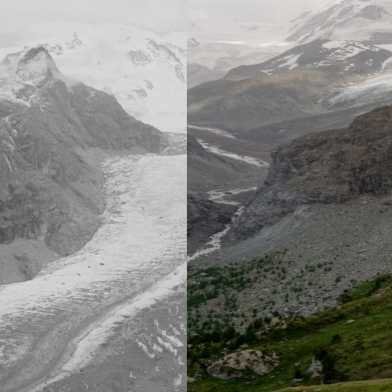
Switzerland’s glaciers are in increasingly poor shape. If greenhouse gas emissions are not cut drastically soon, they could cease to exist by 2100 – so says ETH Professor Daniel Farinotti in this ETH News interview to mark the first World Day for Glaciers.
The amount of selenium in the environment also has an impact on health
- Environmental sciences
- Research
- D-USYS
- News
- Homehero
- Globe
- Globe magazine
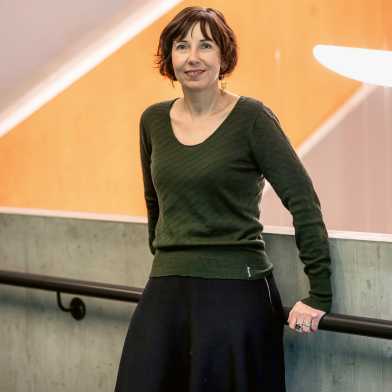
Lenny Winkel researches the environmental behaviour of trace elements such as selenium. A native of the Netherlands, she adores the Swiss mountains.
Investigating water and nitrogen balances in the fruit orchard of Europe

Focusing on the highly productive Campo de Cartagena area in southeast Spain, a new interdisciplinary project seeks to enhance the understanding of how different crop rotation practices impact water and nitrogen balances under climate change scenarios.
Call for Proposals: Addressing Environmental and Human Health Risks in Food Systems
- World food system
- Health sciences

A new research funding opportunity aims at addressing critical environmental and human health risks in food systems.
Call for Applications - World Food System Summer School 2025
World food system

We are excited to announce that applications for the 2025 World Food System Summer School “Design Ideas for Sustainable Food Systems” are open now!
Microalgae production for more sustainable and nutritious diets

Updates from the Novel Protein for Food and Feed Flagship Project include the research team from ETH Zurich recently contributed to the Spirulina Industry Development International Conference.
Transforming lives: Supporting sustainable sanitation at South African schools

The RUNRES team reports on a successful innovation for improving sanitation systems in South Africa primary schools. The devised state-of-the-art system improves sanitation facilities and also offers the unique, eco-friendly advantage of providing nutrients for school agricultural activities.
The cost of climate-neutral aviation in the future
- Environmental sciences
- Research
- News
- Sustainability

Flight ticket prices could rise by 50 percent if aviation is made climate-neutral. This is an estimate from a new study by researchers at ETH Zurich. It is based in particular on the use of synthetic fuels.
Improving training programs for women farmers in central India
- World food system
- Research

A recent study examined how training programs for Indian women working in agriculture can be improved. ETH student Alicia Luther found that effective trainings should be held in a participative and demand-driven way. A participative methodology is key to include participants’ topics of interest, making the potential for adoption higher.
Interpreting traces of arsenic in rain
- Environmental sciences
- Research
- D-USYS
- News
- Sustainability
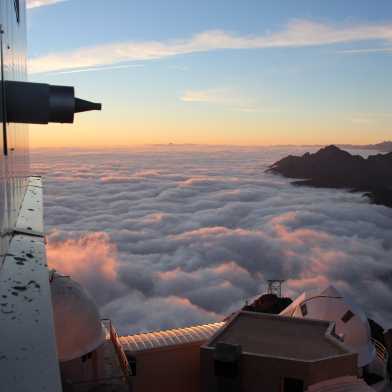
On the Pic du Midi in the Pyrenees, ETH Zurich researchers have analysed particulate matter, clouds and rainwater for traces of arsenic. Using newly developed measurement methods, they have elucidated the transport pathways of the environmental toxin in the atmosphere.
Daria Odermatt and Helena Ström receive SFIAR Award 2024
- D-USYS
- Institute of Agricultural Sciences
- World food system

Daria Odermatt and Helena Ström are the winners of this year's Swiss Forum for International Agricultural Research (SFIAR) award. Both Odermatt's and Ström's research offers promising pathways to healthier plants and increased yields for smallholder farmers in Africa.
Beyond the Price Tag: True Costs in the Food and Agricultural System

At a recent webinar, experts from various fields discussed the current state of true cost accounting, its challenges, and ongoing initiatives aimed at integrating this comprehensive approach into food systems. The event was hosted by the World Food System Center and the Swiss Society for Agricultural Economics and Sociology.
ETH Researchers join the World Food Forum
- World food system
- International
- Sustainability

A selected delegation of seven students and researchers represented ETH Zurich and co-organized a side event at World Food Forum, held at the FAO in Rome in October.
Climate change alone does not cause mass migration
- Sustainability
- News
- Forschung
- Zukunftsblog
- Environmental sciences
- D-MAVT
He set the tone for climate
- Environmental sciences
- Biodiversity
- News
- Sustainability
- Climate sciences
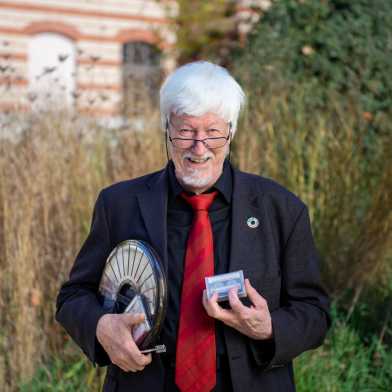
On 2 December, Andreas Fischlin will give his farewell lecture. Time for a profile of the systems ecologist who fought against climate change at the highest political level.
Previously unknown compound in chloraminated drinking water identified
- Environmental sciences
- Research
- D-USYS
- News
- Sustainability
- International

Since the 1980s, it’s been known that a mysterious contaminant forms in chloraminated drinking water, but only now has a Swiss-American research team been able to identify the unknown product in US drinking water systems.
ETH Zurich team takes home a quarter million in biodiversity prize
- Biodiversity
- Research
- D-USYS
- Events
- Homehero
- The latest honours and prizes
- International
- Environmental sciences
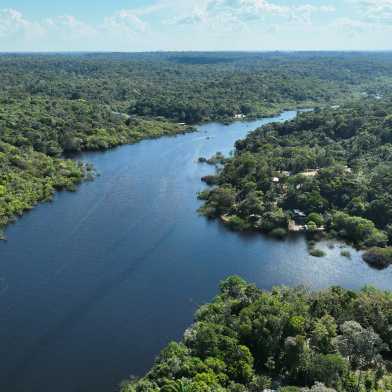
The XPRIZE Rainforest competition acknowledged ETH Zurich-led team for its development and deployment of novel, autonomous technologies that enable near real-time insights about biodiversity.
“Geoengineering will not solve the problem of climate change”
- Climate sciences
- Research
- D-USYS
- News
- Sustainability
- Institute for Atmospheric and Climate Science
- Environmental sciences

A team led by ETH climate researcher Sandro Vattioni has shown that diamond dust released in the atmosphere could be a good way to cool the climate. However, it is still not a sustainable solution to climate change, says Vattioni in an interview with ETH News.
AI on Our Plates
- World food system
- Sustainability
- Agricultural sciences

At the AI + Environment Summit in Zurich, an afternoon workshop led by the World Food System Center focused on the use of AI for sustainable food systems.
Public Lectures on Agroecology
- World food system
- Agricultural sciences
- Institute of Agricultural Sciences

Agroecology is a promising integrated and holistic approach that aims at transforming food systems. Join our upcoming public lecture series to learn more.
Crop forecasting from space
- Spin-offs and patents
- Research
- D-USYS
- News
- Plant sciences
- Space research
- Agricultural sciences
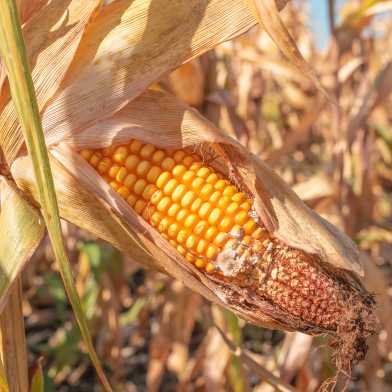
ETH spin-off Terensis is able to forecast the harvest yield and climate risks such as droughts and frost with the help of satellites. This not only helps farmers to plan. Authorities and insurance companies can also predict damage more efficiently.
From cell partitions to dams: These barriers are being investigated by ETH researchers
- Research
- D-HEST
- Environmental Engineering
- Life sciences and medicine
- Chemistry
- D-CHAB
- D-BIOL
- Spatial planning
- Globe magazine
- Homehero
- News
- D-ARCH
- Biology
- Environmental sciences
- D-MAVT
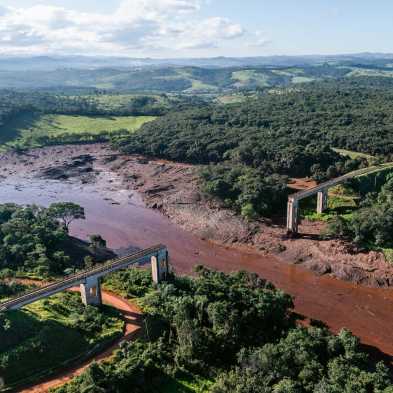
Research areas at ETH Zurich span barriers in a wide variety of fields, including cell biology, drug delivery and spatial planning. Below, we look at examples from six different disciplines.
Is there a perfect diet for a long life?
- Health sciences
- Research
- News
- Homehero
- D-HEST
- Food sciences
- Biology
- Globe magazine
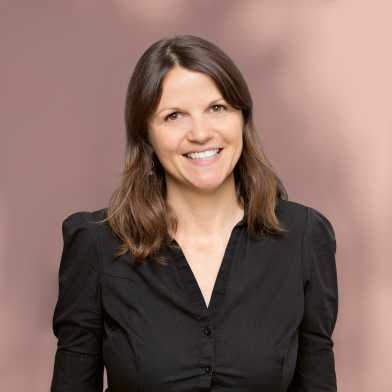
Nina Cabezas Wallscheid, Professor of Stem Cell Biology and Ageing, is researching the impact of nutrition on the human blood system. Her research team aims to identify the ideal diet for a long and healthy life.
How an ETH alumnus ended up growing coffee in Zambia
- Agricultural sciences
- Innovation & Industry
- D-USYS
- News
- Sustainability
- Homehero
- Globe magazine
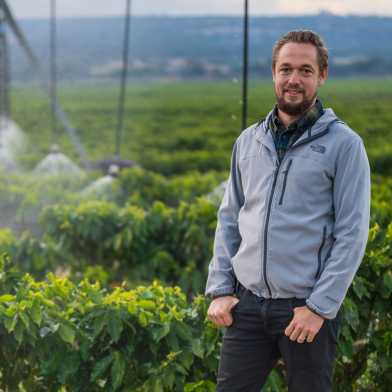
ETH agronomist Fridolin Stocker worked on Swiss farms before discovering his fascination for Africa. Today he manages a coffee farm in Zambia.
New method in the fight against forever chemicals
- Environmental sciences
- Forschung
- D-HEST
- News
- D-MAVT
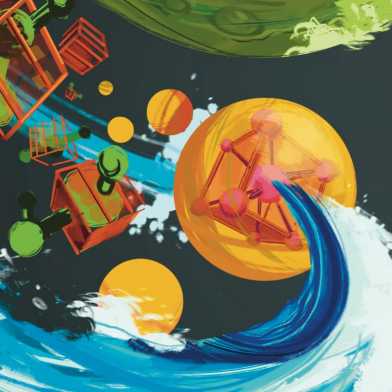
Researchers at ETH Zurich have developed a new way to break down a dangerous subgroup of PFAS known as PFOS. With the help of nanoparticles and ultrasound, piezocatalysis could offer an effective alternative to existing processes in the future.
FAO Director General visits ETH
World food system

The Director General of the United Nations Food and Agricultural Organization recently visited ETH Zurich to discuss innovation and collaboration for sustainable food systems.
ETH researchers receive SNSF grants
- Funding
- Research
- News
- Mathematics
- Chemistry
- Environmental sciences

Four researchers from ETH Zurich have successfully applied for Consolidator Grants funded by the Swiss National Science Foundation.
Millions of years for plants to recover from global warming
- Climate sciences
- Research
- D-USYS
- Earth sciences
- D-EAPS
- News
- Geophysics
- Environmental sciences
- Institute of Geophysics
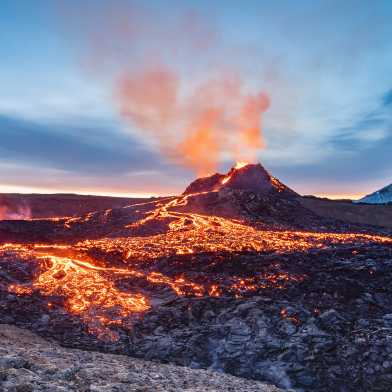
Catastrophic volcanic eruptions that warmed the planet millions of years ago shed new light on how plants evolve and regulate climate. Researchers reveal the long-term climate effects of disturbed natural ecosystems - its implications both in geological history and for today.
How satellite images help to protect forests
- Spin-offs and patents
- Research
- Space research
- D-BAUG
- Climate sciences
- Space Science and Technology
- News
- Cooperations
- Environmental sciences
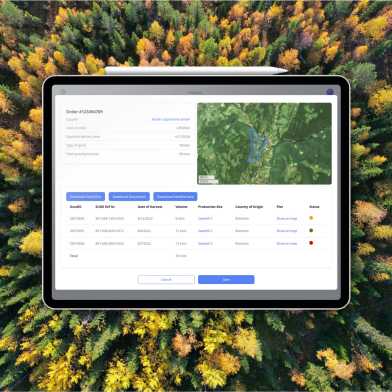
Earth seen from space: ETH spin-off askEarth facilitates access to satellite images for environmental and climate monitoring. It supports businesses in combatting deforestation.
From Vision to Reality: A Network for Alumni
- World food system
- Teaching & Learning

Alumni Stories: Karolina Rodriguez and the Board of the World Food Systems Network share the story of the journey of the network from an idea to a vibrant community striving to empowering food systems globally.
Insects to Feed the World
- World food system
- Research

Updates from the Novel Protein for Food and Feed Flagship Project include new results from projects addressing food waste management using black soldier fly larvae and presentations at the Insects to Feed the World Conference.
RUNRES Project Updates
- World food system
- Research
- Institute of Agricultural Sciences

The RUNRES (Rural-Urban Nexus: Establishing a nutrient loop to improve city-region food system Resilience) team held their 5th Annual Meeting in Nyamata, Rwanda, bringing together members from Switzerland, the Democratic Republic of Congo, Ethiopia, Rwanda, and South Africa.
Feeding Scientific Creativity
- World food system
- Teaching & Learning

The Center’s recent workshop brought 20 ETH researchers together to learn about elements of food design as well as ways to cultivate a creative mindset and apply it in their studies and work.
This researcher reads rivers
- Environmental Engineering
- Research
- News
- Sustainability
- Homehero
- Funding
- D-BAUG
- Environmental sciences
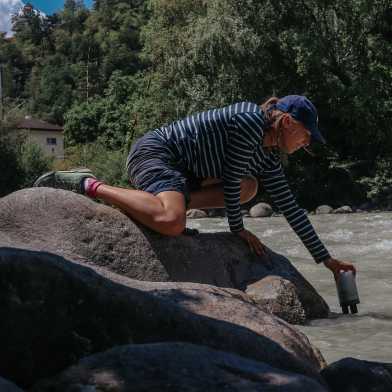
Jessica Droujko’s start-up, Riverkin, measures the water quality of freshwater ecosystems and helps quantify and respond to risks such as floods and pollution. Thanks to an ETH Pioneer Fellowship, her work is now picking up speed.
Science on Your Plate at Food Zurich
- World food system
- Events
- Food sciences

The World Food System Center again joined with Food Zurich to create an innovative dinner event: Science on your Plate. Young researchers from ETH Zurich shared insights from their work with guests enjoying a delicious vegan menu developed by young star cook Mirco Kristal.
Using radar to study glaciers
- Globe magazine
- Report
- Homehero
- Environmental Engineering
- D-BAUG
- Environmental sciences
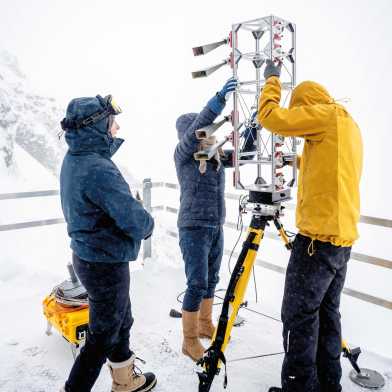
ETH researchers are using radar to scan the snow and ice on the Jungfraujoch. Sometimes, scaling an icy peak is the only way for scientists to fully understand satellite data.
How can we tax electric cars without slowing down the electromobility transition?
- Zukunftsblog
- Sustainability
- Sustainability
- Research
- Mobility
- D-GESS
- News
- Political science
- Environmental sciences

The federal government has plans to tax electric vehicles to secure funding for road infrastructure. However, a new levy could delay the switch to electromobility. Alessio Levis explains how this dilemma could be resolved.
When stones start rolling
- Environmental Engineering
- Research
- D-USYS
- Systems science
- Sustainability
- Homehero
- D-BAUG
- News
- Environmental sciences
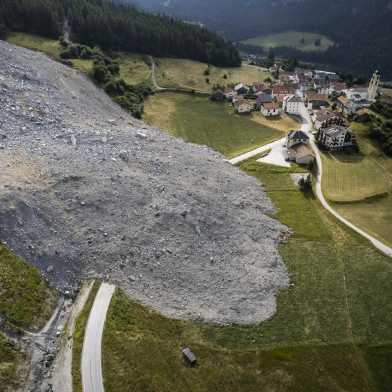
The landslide in Brienz (GR) in 2023 kept Switzerland on tenterhooks for weeks. Researchers from ETH Zurich, WSL and SLF used a model to provide a highly accurate blind prediction of where the sliding mass would come to rest. ETH Professor Johan Gaume explains how the model works and where its limitations lie.
Chocolate that harnesses the full potential of the cocoa fruit
- Food sciences
- Research
- News
- Sustainability
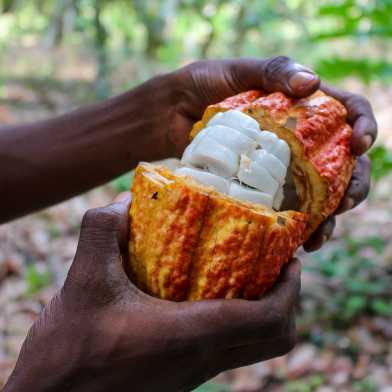
Researchers at ETH Zurich have teamed up with the food industry to produce a whole-fruit variety of chocolate. This helps increase the value creation of cocoa farming – and is healthier.
Thinking climate action, biodiversity and energy supply together
- Zukunftsblog
- Sustainability
- D-USYS
- Research
- Sustainability
- Climate sciences
- News
- Biodiversity
- Environmental sciences

Renewable energies are not the main driver of biodiversity loss. It is rather the other way round: renewables can limit climate change in order to preserve biodiversity. Cyril Brunner contextualises the trade-offs from a scientific perspective.
Mosaic grassland landscapes are the most beneficial
- Agricultural sciences
- Research
- D-USYS
- Sustainability
- Biodiversity
- Plant sciences
- Environmental sciences
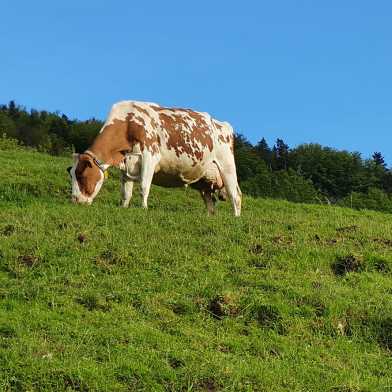
Like forests, grassland provides numerous ecological, economic and social benefits. Researchers have investigated ways to maintain and improve these benefits in the Swiss canton of Solothurn.
New gel breaks down alcohol in the body
- Press release
- Food sciences
- D-HEST
- Materials science

Researchers at ETH Zurich have developed a protein-based gel that breaks down alcohol in the gastrointestinal tract without harming the body. In the future, people who take the gel could reduce the harmful and intoxicating effects of alcohol.
Discussing sustainable food systems at the FAO in Rome
- World food system
- Teaching & Learning

Since 2014, the Center has collaborated with the Food and Agriculture Organization of the United Nations (FAO) and the Sustainable Agroecosystems Group to offer a three-day course for ETH Zurich Master’s students at the FAO headquarters in Rome.
Twisted pollen tubes induce infertility
- Biology
- Research
- News
- D-BIOL
- Plant sciences
- Agricultural sciences
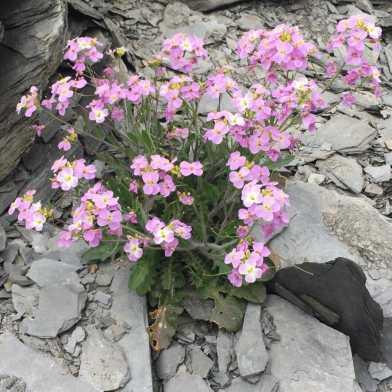
Plants with multiple sets of chromosomes have advantages over their relatives with a double set. But why they often start out infertile was only partially understood. Biologists at ETH Zurich have now discovered a new reason for the initial difficulties.
Tropical forests can't recover naturally without fruit eating birds
- Environmental sciences
- Research
- D-USYS
- News
- Biodiversity
- Climate sciences
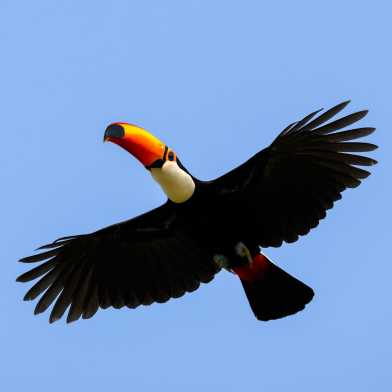
Natural forest regeneration is hailed as a cost-effective way to restore biodiversity and sequester carbon. However, the fragmentation of tropical forests has restricted the movement of large birds limiting their capacity to disperse seeds and restore healthy forests.
Project Booklet 2024
- World food system
- Research

Our 45 members are full of ideas on how to drive change towards food and nutrition security, environmental health and social well-being for all in our world food system.
Annual Report 2023
- Research
- World food system
- Agricultural sciences

We are pleased to share our Annual Report 2023, which highlights our many research, education, and outreach activities focused on food system transformation.
Empowering farmers to build resilience to climate change
- World food system
- International

Alumni Stories: Benjamin Gräub shares struggles and insights from his learning journey while developing a new app for farmers in Kenya in times of Covid, a project supported by a Center Ambassador Grant.
NICE project team visits ETH Zurich
World food system

Over a week in March, NICE country teams and representatives from six cities in Rwanda, Kenya, and Bangladesh joined in peer-learning visits to Zurich and Geneva in Switzerland. The public was able to join in discussions with the consortium at the seminar ‘How do we build sustainable urban food systems?’
Strengthening Swiss hydropower with science
- Energy sciences
- Research
- News
- Sustainability
- Environmental sciences
- Climate sciences
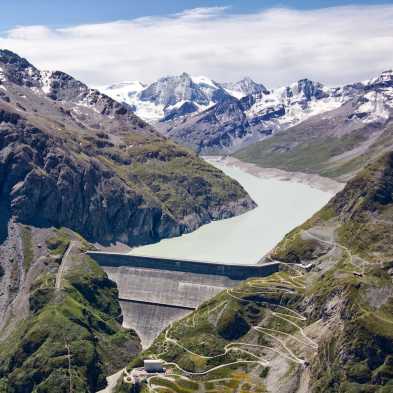
Researchers at ETH Zurich led by Robert Boes are developing specific solutions to optimise electricity production from Swiss hydropower plants. This will ensure that hydropower remains the backbone of Switzerland’s electricity supply in the future.
How micro- and nanoplastics are infiltrating the Arctic ice
- Environmental sciences
- Research
- D-USYS
- News
- Sustainability
- Careers
- Chemistry
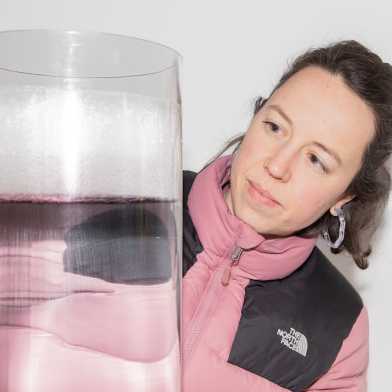
Environmental scientist Alice Pradel cultivates ice cores in the lab to investigate the transport and accumulation of micro- and nanoplastics. Her aim in doing so is to better understand material flows in the Arctic ice.
Pesticide-free as a new pathway for agriculture
- Sustainability
- D-USYS
- Research
- Sustainability
- Plant sciences
- News
- Agricultural sciences
- Zukunftsblog
- Environmental sciences

We can transition to pesticide-free agriculture without converting to organic farming. Robert Finger outlines the advantages and challenges involved.
Combatting infant malnutrition
- Globe magazine
- Focus
- D-BSSE
- World food system
- Computational Biology
- Biotechnology
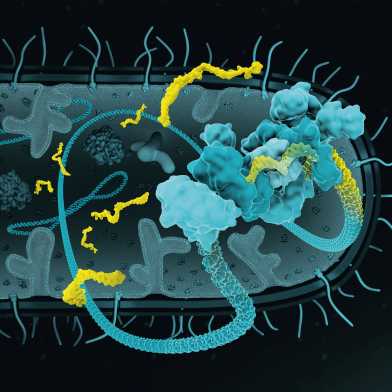
Bioengineer Randall Platt engineers bacteria that can assess the state of our guts. It is hoped this non-invasive technique could eventually be used to develop more effective interventions against malnutrition among children in the Global South.
A thirst for adventure
- Globe magazine
- Profile
- Food sciences
- Homehero
- Careers
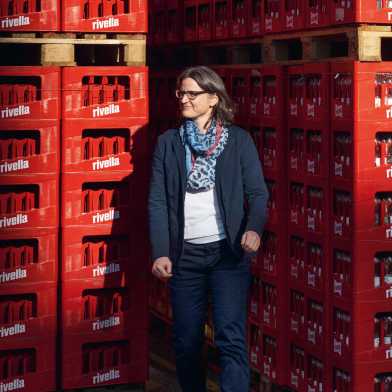
Sport and an interest in healthy eating took Martina Pfeiffer first to ETH Zurich and then to Swiss beverage producer Rivella. Her active lifestyle has always kept her at the top of her game.
Recycling plastic is not a quick fix
- Sustainability
- Research
- Environmental Engineering
- D-BAUG
- Chemistry
- News
- Zukunftsblog
- Environmental sciences

Recycling is an accepted formula for sustainable resource use, but in the case of plastic it can have serious side effects, says Helene Wiesinger – and uses the example of plastic flooring in Switzerland to illustrate the dilemma.
The man for freak events
- Climate sciences
- Research
- D-USYS
- Sustainability
- Teaching & Learning
- D-ITET
- News
- Institute for Atmospheric and Climate Science
- Environmental sciences
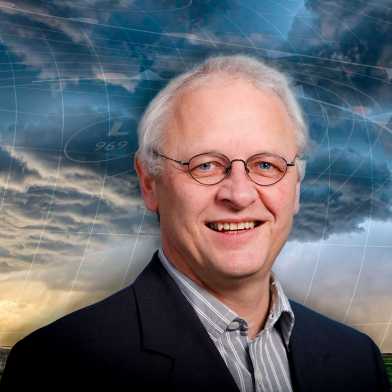
Christoph Schär is one of the Swiss climate scientists who have shaped high-resolution climate modelling. He is now retiring after more than 35 years at ETH Zurich. In this portrait, he explains why he himself never tires of researching climate change.
Cost of direct air carbon capture to remain higher than hoped
- Climate sciences
- Research
- Sustainability
- D-GESS
- News
- Cooperations
- Spin-offs and patents
- Environmental sciences
- D-MAVT
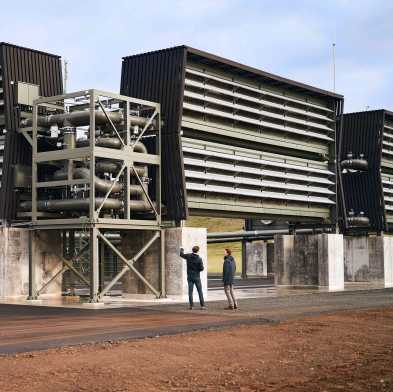
The cost of removing large quantities of CO2 from the air will fall in the medium term, but not as much as previously hoped. This is the conclusion reached by ETH researchers on the basis of new calculations. Efforts to reduce carbon emissions should therefore continue at pace, says the research team.
For equitable access to urban green spaces
- Sustainability
- D-USYS
- Landscape architecture
- News
- Spatial planning
- Urban design
- Zukunftsblog
- Environmental sciences

Vacant land, community gardens and public parks are key resources for liveable cities. Fritz Kleinschroth calls on urban planners to focus on giving nature more space and on granting equitable access to green spaces.
What can bulls tell us about men?
- Agricultural sciences
- Research
- News
- World food system
- Environmental sciences
- Medicine
- Animal experiments
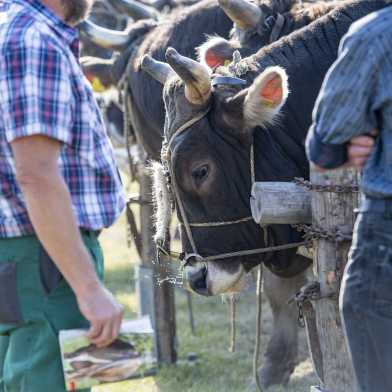
Researchers have found genes in the reproductive organs of bulls that influence fertility. The findings can be transferred to humans, as these genes are also present in men.
A “cultivation battle” for legumes
- Zukunftsblog
- Sustainability
- D-USYS
- News
- Agricultural sciences
- Environmental sciences
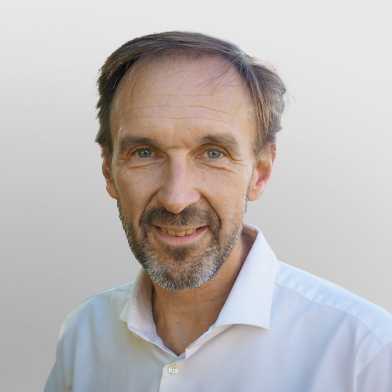
Achim Walter believes increased cultivation of legumes would bring major benefits. But how to persuade farmers in Switzerland to make the switch?
How ETH knowledge and local expertise are helping the reconstruction of Ukraine
- Architecture and spatial planning
- Events
- Architecture
- ETH Zurich, Zentrum
- Engineering sciences
- Spatial planning
- Urban design
- D-USYS
- Homehero
- Civil engineering
- International
- D-BAUG
- Society & Institution
- D-ARCH
- Agricultural sciences
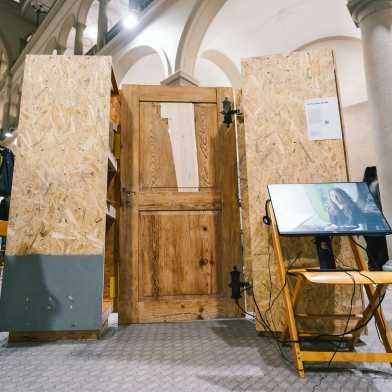
Two years ago, Russia launched its war of aggression against Ukraine. One direct consequence of the conflict is the destruction of buildings and infrastructure. Now an exhibition in the ETH Main Building entitled “ETH with Ukraine” is showing how buildings, facilities and the environment in Ukraine can be protected or restored.
Groundwater levels are sinking ever faster around the world
- Environmental sciences
- Research
- D-USYS
- News
- Sustainability
- World food system
- Environmental Engineering
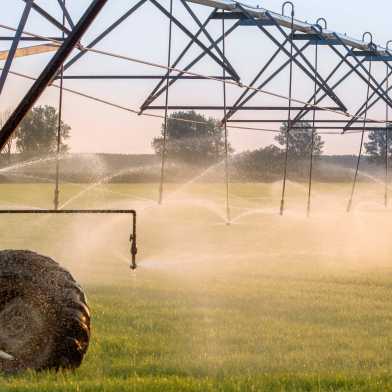
A global study shows that the world’s groundwater resources are dwindling: levels are falling sharply worldwide, and the decline has accelerated in the 21st century. Nevertheless, there is still reason for hope.
Breathing new life into an ancient crop
- World food system
- Teaching & Learning

Alumni Stories: Future Food Fellow Joan Oñate Narciso shares how her work on kabog millet with communities in Cebu, Philippines has left a lasting impression on her life.
Innovation technologies for circular economies
- World food system
- Research
- Institute of Agricultural Sciences

As the RUNRES project enters its second phase of developing and now upscaling innovations for circular economies in the rural-urban nexus, private-public-partnerships will continue to play an important role.
Smart farming for more sustainability
- World food system
- Research
- Institute of Agricultural Sciences
- Agricultural sciences

New ways to measure nitrous oxide emissions from soils as well as detect invasive pests in vineyards are the foci of two new interdisciplinary projects starting in 2024. Both projects are funded by the Center’s Smart Sustainable Farming Research Program.
Developing new microalgae-based food products
- World food system
- Research
- Food sciences

Updates from the Novel Protein for Food and Feed Flagship Project include the development of “calamari” rings made from microalgae and mung bean protein as well as a study on Singaporean consumers’ acceptance of microalgae-based foods.
Understanding benefits and trade-offs in agriculture
- World food system
- Research
- Institute of Agricultural Sciences
- Agricultural sciences

The Center announces two new projects starting in 2024 focused on understanding how different crop rotation practices affect water and nitrogen balances as well as production. Both projects are funded by the Improving Sustainability of Agricultural and Food Systems across Key Environmental Metrics Research Program.
New research on nutrition and health
- World food system
- Research
- D-HEST

Three new projects supported by the Future Food Initiative focus on various topics of health and nutrition. Adipose tissue expandability and probiotic bacteria functional ability will be investigated as well as new innovations for processing plant proteins.
